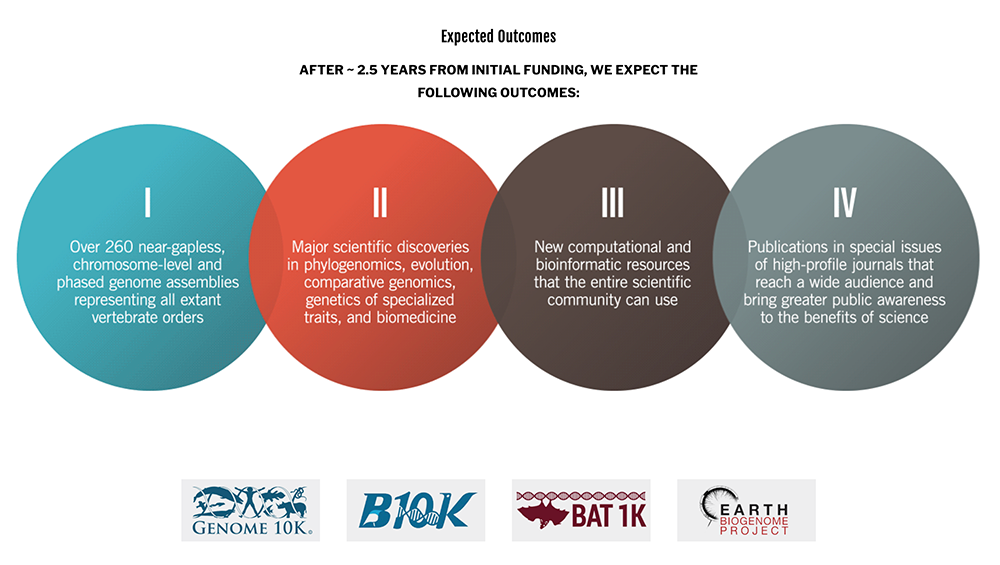The Vertebrate Genomes Project at Rockefeller University
The Vertebrate Genomes Project (VGP)(opens in new window) aims to generate error-free reference-quality genome assemblies representing all 70,000 vertebrate species. Genome assemblies are a map of an organism’s genes, which determine that organism’s characteristics. Understanding the DNA sequence similarities and differences between all vertebrates will enable the study of how genes have contribute to the evolution and survival of these species. Broadly, we expect that the VGP will provide a powerful resource to advance questions in biology, genomics, conservation, medicine, and bioinformatics.

The mission of the VGP was influenced by lessons learned from its predecessor consortium, the G10K(opens in new window) project to generate genomes of 10,000 or more vertebrate species and the The Avian Phylogenomics Project(opens in new window) to sequence the genomes of species representing bird orders to decipher the ordinal bird family tree. One major lesson that we learned was the need for generate high-quality genome assemblies, to prevent thousands of errors that affect all studies. We worked with industry partners to help develop methods for unprecedented high-quality genome sequencing and assembly, and at reasonable costs.
Understanding the DNA sequence between all vertebrates will enable the study of how genes have contributed to the evolution and survival of these species.
The VGP genomes have become the main references for their species. Many of them are stored in the Genome Ark, a digital open-access library workspace for high-quality reference genomes. They are finally deposited in the INSDC public database for use by scientists and the public (NCBI(opens in new window), ENSEMBL(opens in new window), and UCSC-Genome Browser(opens in new window)). These genomes have been used by consortium members and the scientific community to address novel questions, ranging from cell-type evolution to the genetics of complex traits and associated diseases. Phase 1 of the VGP aims to generate high-quality near error-free genomes of 260 species representing all vertebrate orders, at a divergence time of ~50 million years ago or greater from their most recent common ordinal ancestor, including human and some species on the brink of extinction. The Genome Ark provides a resource for conservation research, providing genomes of species endangered of becoming extinct. This library of near error-free, complete, chromosome-level, haplotyped phased, and annotated reference-quality genome assemblies represents in a new era in genomics.
